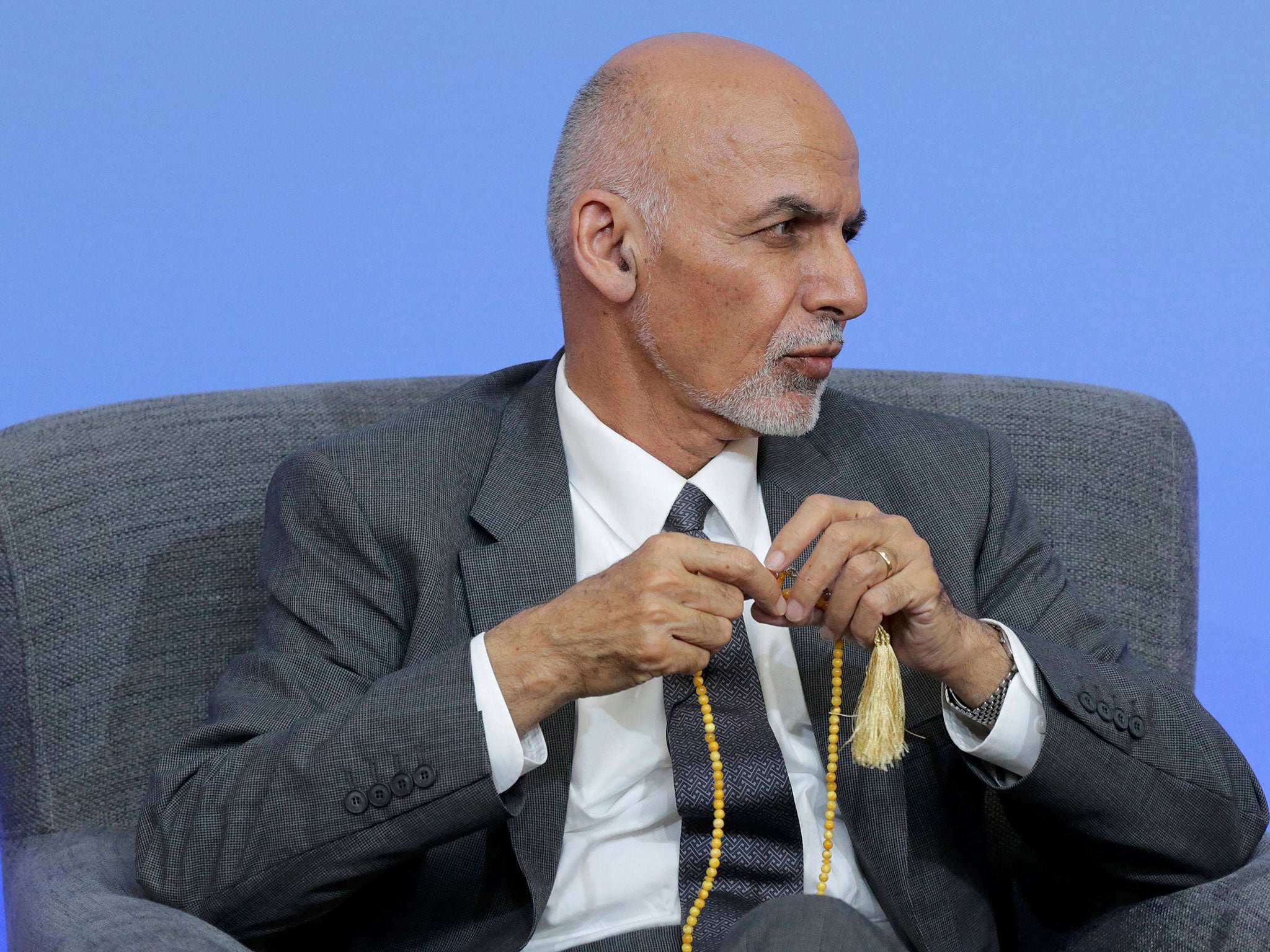Heckling of Afghan president at Anti-Corruption Summit gives glimpse of country's divisions
Ashraf Ghani was accused of presiding over an inefficient and corrupt administration


Ashraf Ghani was four minutes into his speech when a young Afghan in the audience stood up and started shouting :“You are a liar! You have lied to the Afghan people and now you are lying to the world! I worked for you, I know all about you!"
The august Royal United Services Institute (RUSI) in Whitehall had not seen anything like this before. Stunned silence was followed by gasps as Afghan security men dragged the heckler, yelling "You are a disgrace”, at the Afghan President out of the auditorium. A shaken Mr Ghani restarted the address he had come to deliver after attending the international anti-corruption summit in London on Thursday.
The summit had started amid great embarrassment after David Cameron was caught on video telling the Queen leaders of “fantastically corrupt" countries, Afghanistan and Nigeria, were coming. Mr Ghani’s talk at RUSI, followed by a question and answer session, it was stressed to us, would be about security, not corruption.
Three minutes later another young Afghan, in another part of the room, stood up. “You are a corrupt man! Everyone knows that! You are also a racist." He unfurled a poster before also being dragged out by the President’s security men. "Help me, they are beating me up! This is Britain, not Afghanistan!” he cried as chairs overturned amid RUSI members sitting open-mouthed in astonishment.
There was a third interruption half an hour later, during questions. A young woman berated Mr Ghani for presiding over an administration which is both inefficient and corrupt. A few of the security men moved towards her, but then hesitated, unsure what to do. She continued until the microphone was taken away from her.
The row was about an electricity transmission project in which power lines have been rerouted away from Bamiyan, a northern province with a predominantly Hazara population. The RUSI protestors were Hazaras; President Ghani is a Pashtun. There have been complaints that his government discriminates against the Hazaras.
The President insisted that he was prepared to engage in debate with his opponents. “See, even in the middle of a war, we are prepared to discuss and debate infrastructure issues. I am prepared to engage with these young people now” he said. The two young men had been thrown out by then. “I understand the anger of young people but your emotions are being exploited” he told the young woman. She was not impressed by this, and told him so.

This episode, in a rather unlikely setting, was a glimpse of the turbulent politics and divisions of Afghanistan. There is a dark history behind Hazara claims of oppression. The Taliban, overwhelmingly Pashtun, had carried out massacres of the community during the country’s civil war, and memories of what took place remain raw.
Mr Ghani, a former World Bank official backed by the West in the Presidential election two years ago, is facing rising unpopularity. Corruption remains endemic; Transparency International has moved Afghanistan down in its index to the third most corrupt in the world. At the same time, poverty levels continue to rise. The security situation in the country is worsening, with Isis and al-Qaeda joining the jihad. Swathes of territory have fallen to the insurgents and attacks on the capital, Kabul, take place with increasing frequency.
Mr Ghani has been blamed for contributing to the security failures. After coming into office he reversed the position of his predecessor, Hamid Karzai, who had blamed the Pakistani military and the country’s secret police, ISI, for orchestrating the attacks. The new President went to see the head of the Pakistani military before meeting Paksitan’s civilian government, a break with protocol. The hope was that the Pakistani military and ISI would bring the Taliban to the negotiating table and curb attacks.
Mr Ghani’s critics, especially in the minority Hazara, Tajik and Uzbek communities, claim that he was setting up an intra-Pashtun deal with the Pakistanis and the Taliban. There is no evidence that the President was acting on sectarian motives. In any event, the gambit failed: no meaningful talks have taken place with Taliban and insurgent attacks have instead increased.
In his RUSI talks, Mr Ghani returned to the Afghan policy of blaming Pakistan for its ills and acknowledged that his attempts at rapprochement had failed. “Why is he surprised by this, everyone could see that’s what will happen,” said an Afghan student in the audience. “Still, I have never been to RUSI before, I didn’t realise it was going to be this exciting. But, you know, if you want to see proper violence you really should go to our parliament in Kabul.”
Join our commenting forum
Join thought-provoking conversations, follow other Independent readers and see their replies
Comments